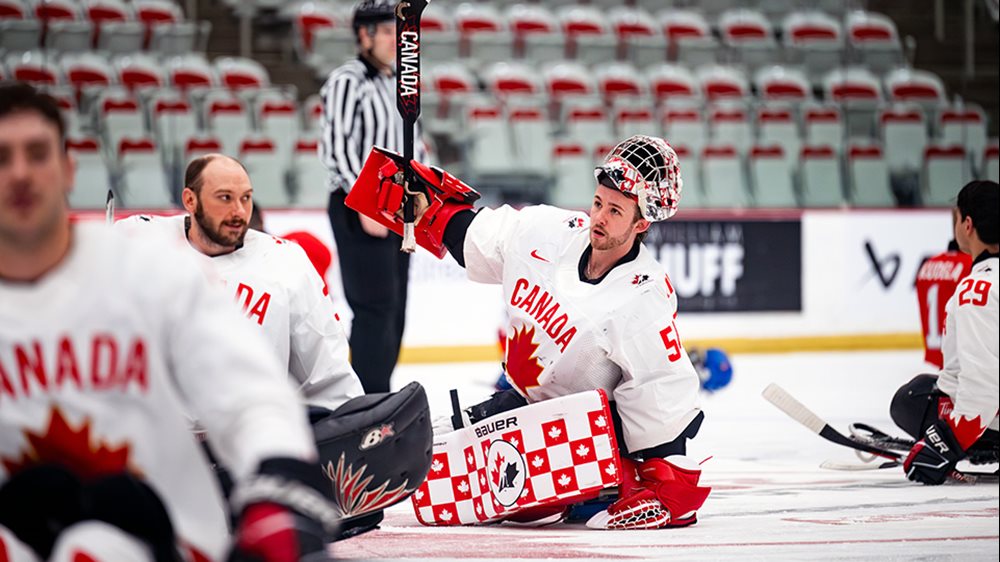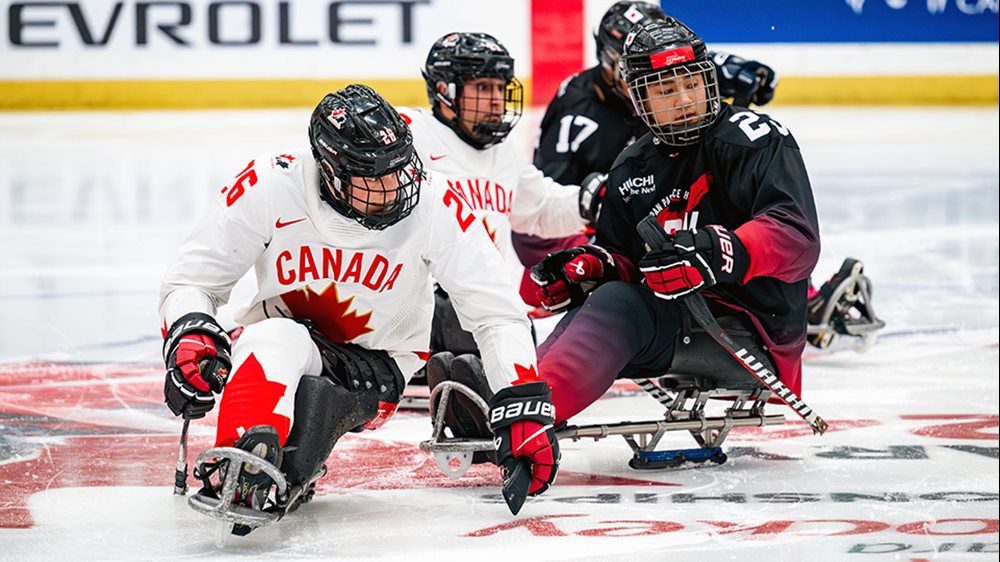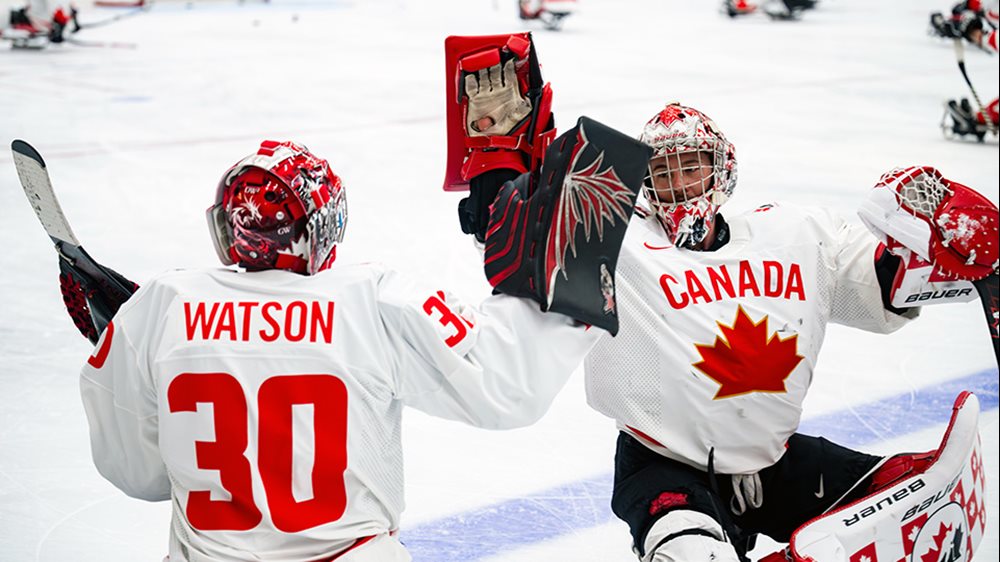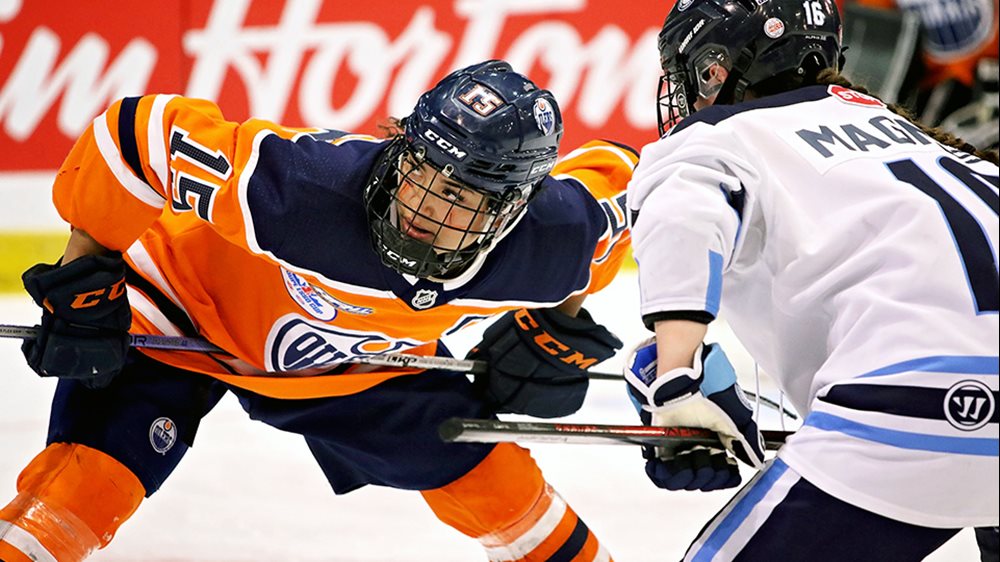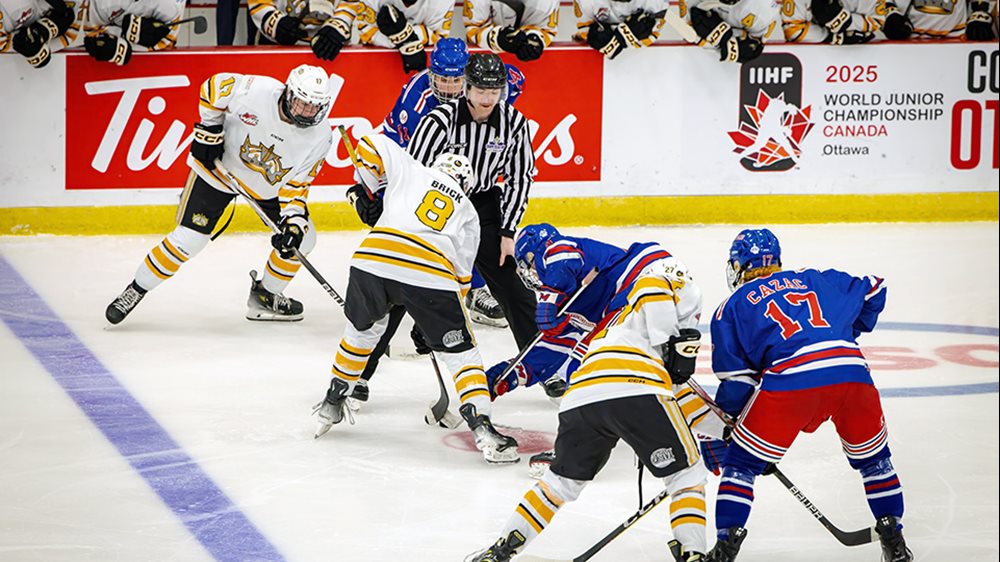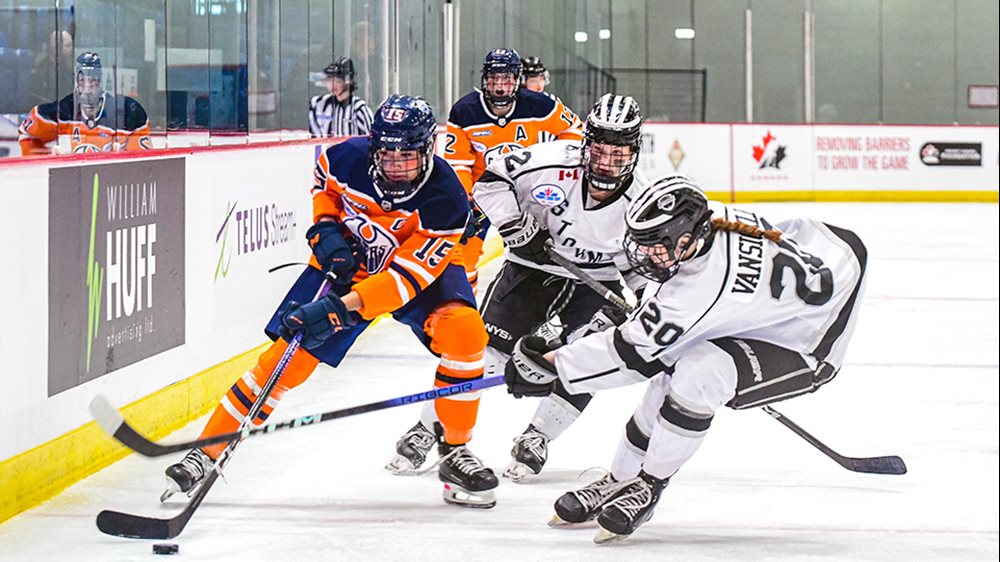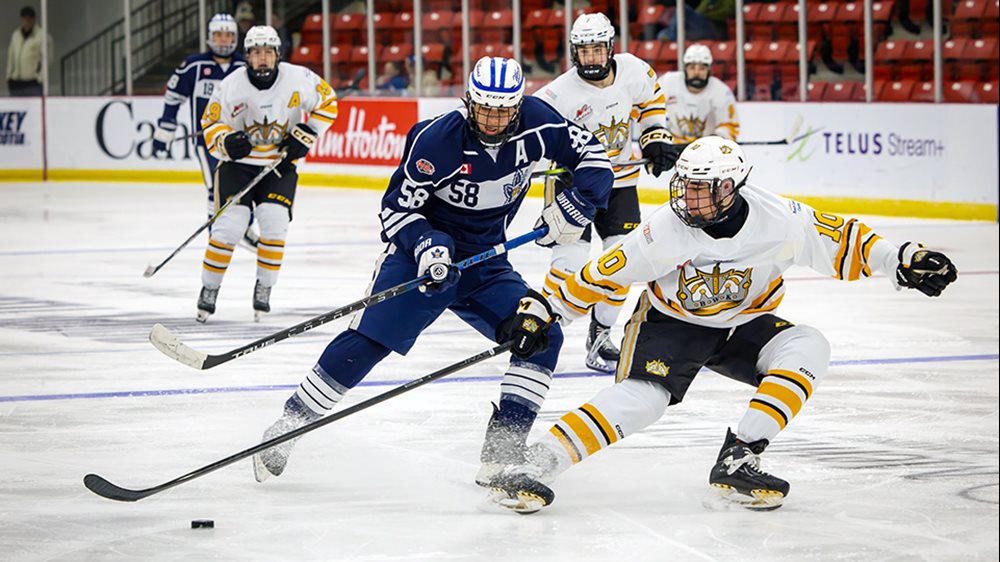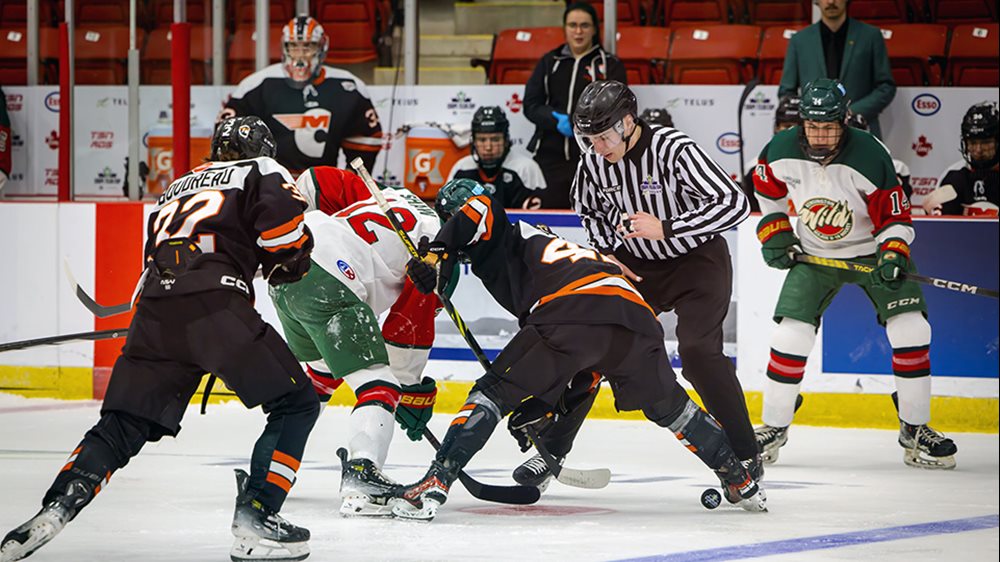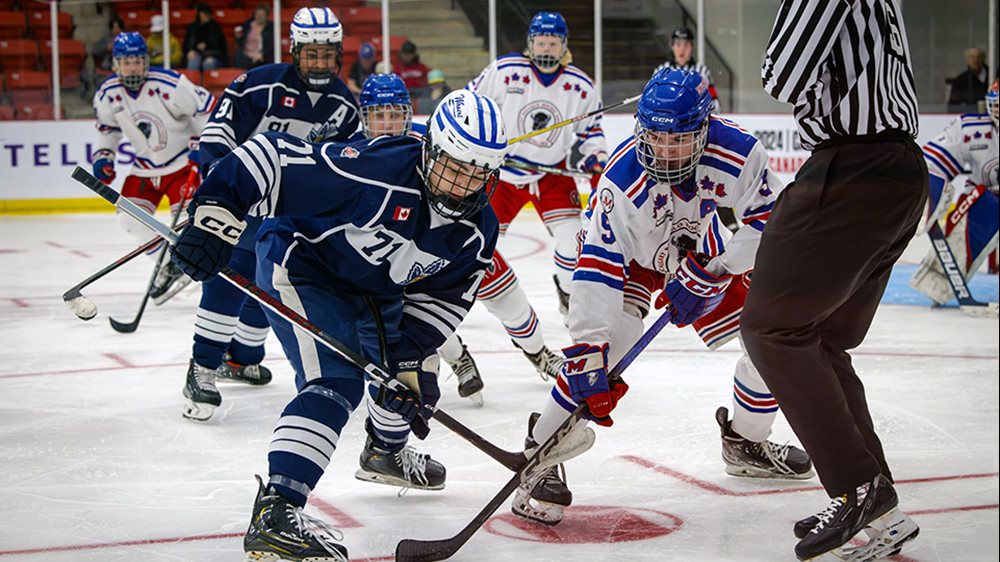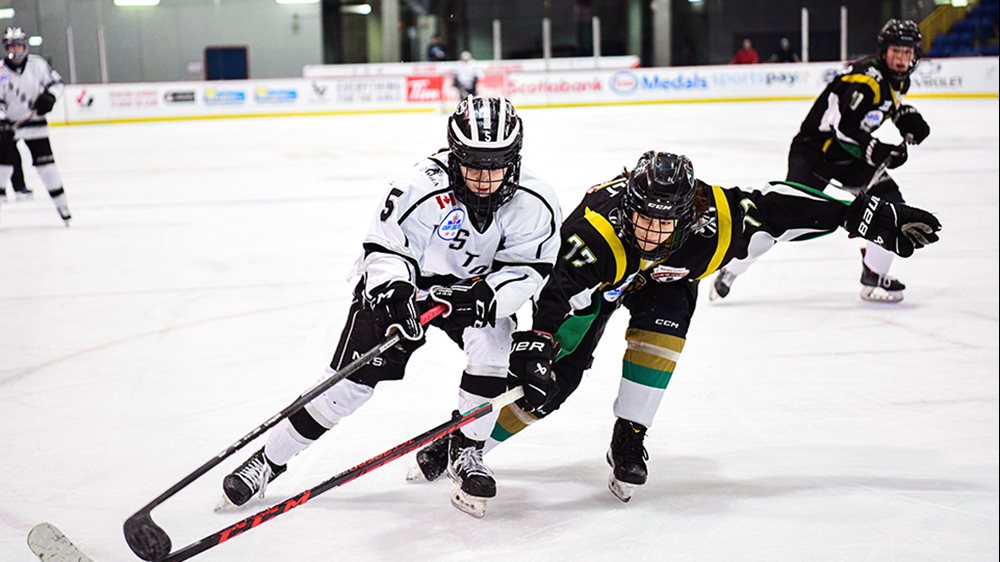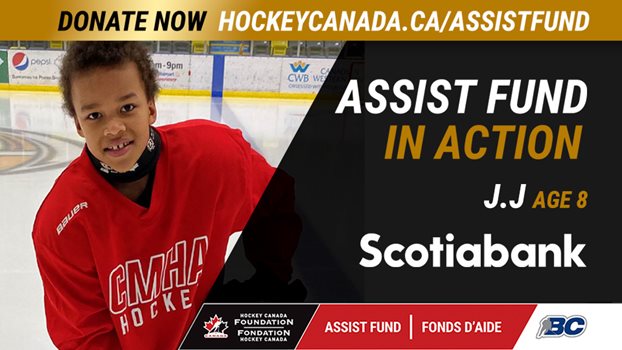
Assist Fund in Action – J.J.’s story
Thanks to help from the Hockey Canada Foundation and Scotiabank, the eight-year-old is on the ice and making memories with his mom
J.J. Prokosh shares a special bond with his mom Tasha on and off the ice.
Hockey was one of Tasha’s first loves – she grew up playing the game, appeared with Team B.C. at the Western Shield and played in college. After having her children, her priorities shifted and hockey was put on the back-burner.
But with J.J. showing interest in the game, that passion became a shared connection.
“I remember when J.J. got interested in skating. We were returning books to the library and the rink is right beside the library. I asked him if he wanted to learn how to skate and he said he did,” says Tasha. “I took him skating the next week and he loved it.”
Skating was something Tasha incorporated into their home-schooling schedule before J.J. went into organized hockey with the Coquitlam Minor Hockey Association.
Eight-year-old J.J. is on the ice thanks to help from his family and other partners, like the Hockey Canada Foundation Assist Fund and Scotiabank, which donated $350,000 to the Assist Fund to help young athletes who are Black, Indigenous and persons of colour cover registration fees. The family learned about the Assist Fund through the Coquitlam MHA and has been grateful for the additional resources to keep J.J. playing the game he loves.
“Any help is good – I’m a single parent and I do it all on my own, so this helps make things so much easier when we can access these funds and get help paying for his season,” says Tasha.
After playing the game for many years, Tasha didn’t think that coaching would be for her. But after J.J. had a “disappointing experience” with a coach when he was five, she stepped up and has been helping coach ever since.
“It totally changed my perspective and I realized that if I am not willing to change something, I can’t complain,” she says. “So, I put on the coaching hat because I had the background and we needed to do it in a way that put the kids first.”
Tasha has that same philosophy off the ice, where the Prokosh family structure is unique.
She is a single mom raising three children – Alexa, who has cerebral palsy, middle son Gabe, and J.J., who is Black. She also dealt with loss; her daughter Faith died in 2013 to kidney failure due to complications with cerebral palsy.
“Our family story is complicated and unique to say the least,” says Tasha. “We cover the gamut in our house – single, Black, white and disabled.”
Even as a child, J.J. noticed that he was one of the few Black hockey players in the community. Tasha had conversations with J.J. about race and used it as a learning opportunity to be open to people of all backgrounds.
“I think when he was younger, he noticed it more. He mentioned it a couple of times and we’ve had some difficult discussions,” says Tasha. “We’ve always come back to – its okay to be who you are. I want J.J. to be proud of who he is and be proud that he is Black.”
“It doesn’t bother me anymore,” J.J. says. “I don’t care if you are white, Black, brown or purple.”
J.J.’s favourite player is former Vancouver Canucks superstar Pavel Bure, but seeing a player like Quinton Byfield lace up for Team Canada at the IIHF World Junior Championship in December made an impression.
“When we saw Byfield on the ice, I told J.J. he looks like a grown version of him,” says Tasha. “He was excited to see someone that looked like him playing on that stage. I told him it would be him in 15 years.”
As much as J.J. and his team would love to be playing games and honing their skills, the ongoing COVID-19 pandemic means they have only been able to scrimmage this season, which has been a struggle.
“It is hard on the kids to not be able to play games,” says Tasha.
As J.J. works on his game with hopes of becoming an NHL defenceman one day, he knows his family will be rooting for him – especially his mom.
“I’ve learned a lot from her – be the best you can, play your game and be smart.”
Applications for the Hockey Canada Foundation Assist Fund are now closed for the 2020-21 season, but donations are being accepted. More information for the 2021-22 season will be unveiled in the spring.
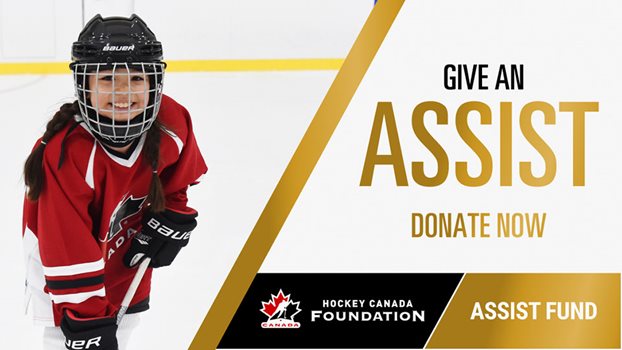
Hockey Canada Foundation grants more than 3,300 financial assists
Record number of Assist Fund applicants to receive registration subsidies
CALGARY, Alberta – The Hockey Canada Foundation has announced that 3,322 young players across the country will receive subsidies towards hockey registration fees for the 2023-24 season through its Assist Fund, which is the most in the program’s four-year history.
More than $1.5 million will be distributed to approved participants this season, with assists going to kids in each of Hockey Canada’s 13 Members.
This year’s record number of assists represents a 30% increase compared to last season, and 38% of assists are to participants who identify with the Black, Indigenous and racialized community.
“The Assist Fund is such an important program that helps more children and families register for hockey and create lifelong memories through the sport we all love,” said Donna Iampieri, executive director of the Hockey Canada Foundation. “This initiative would not be possible without the generosity of Canadians and our partners, and with their support, we look forward to providing more assists to those facing financial barriers to hockey in the future.”
Since 2020, the Assist Fund has provided financial support to more than 8,000 kids, including over 3,000 who identify with the Black, Indigenous and racialized community. The Assist Fund was launched ahead of the 2020-21 season in response to the many families experiencing financial challenges as a result of the COVID-19 pandemic, and has continued to provide subsidies to help more young Canadians enjoy the game they love.
The Hockey Canada Foundation Assist Fund – parent testimonials
“Tucker loves everything hockey, and he is so thankful for organizations like this that let him get on the ice. Thank you for helping my child be active and healthy!” – Jesse in Ontario
“Our community has a growing number of Indigenous players and we wouldn’t be able to do it without the support of the Assist Fund.” – Averil in British Columbia
“Jaxon eats, sleeps and plays hockey and his love for it is something I could never take away from him. We are honoured to be part of the Hockey Canada Foundation and look forward to keeping him doing what he loves.” – Charlene in Alberta
Canadians can give an assist of their own this holiday season, with 100% of donations going towards subsidized registration fees for additional Canadian kids. More information can be found at AssistFund.HockeyCanadaFoundation.ca.
To learn more about the Hockey Canada Foundation, please visit HockeyCanadaFoundation.ca, or follow along through social media on Facebook, LinkedIn, X and Instagram.
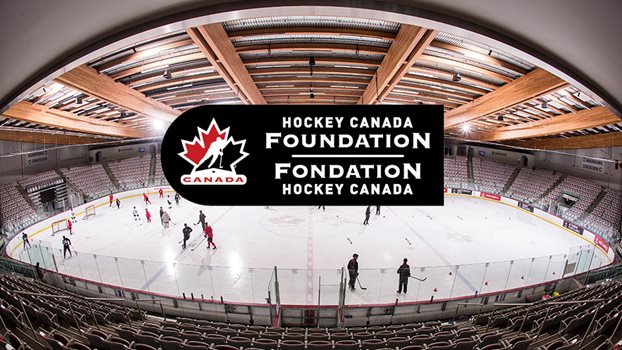
Hockey Canada Foundation announces new board members
Steven Albiani, Angela James and Brad Morris join Hockey Canada Foundation Board of Directors
CALGARY, Alta. – The Hockey Canada Foundation (HCF) has welcomed three new members to its board of directors, with the appointments of Steven Albiani (Toronto, Ont.), Angela James (Toronto, Ont.) and Brad Morris (Unionville, Ont.).
“We are excited to have Steven, Angela and Brad join the Hockey Canada Foundation Board of Directors, as each of them bring unique perspectives and experiences in hockey,” said Doug Goss, chair of the HCF Board of Directors. “Their expertise will be important to furthering our efforts in communities across the country, and we look forward to working with them to enhance our programs that help eliminate barriers in the game.”
Albiani is the managing partner of Stratum Advisory Group Inc., a boutique tax and insurance planning firm. A certified financial planner who holds a certificate as a family business advisor from the Family Firm Institute, Albiani is a volunteer member of the SickKids Foundation Professional Advisory Board, and sits on the boards of a number of private companies. He has also been a guest instructor at the University of Toronto and Queen’s University, his alma mater.
Widely considered as the first superstar in women’s hockey, James led Canada’s National Women’s Team to win a gold medal at four IIHF World Women’s Championships, scoring a record 11 goals at the inaugural edition in 1990. She was inducted into the Hockey Hall of Fame in 2010, appointed to the Order of Hockey in Canada in 2021 and was made an officer of the Order of Canada in 2022. James is the co-owner and general manager of the Toronto Six of the Premier Hockey Federation.
Morris is currently a global executive with Grote Industries LLC, a leading worldwide innovator of transportation safety systems. From 2012 to 2017, Morris was the chair of the board of the Canadian Women’s Hockey League (CWHL) and received the 2018 CWHL Humanitarian of the Year Award. Morris has also served on many other not-for-profit boards, most recently as chair of the Markham Stouffville Hospital Foundation, and has been a long-time advocate for growing women’s and girls’ hockey.
To unite all Canadians and achieve its mission, the Hockey Canada Foundation is committed to three strategic priorities: enable, educate and engage. Each year, HCF programs remove barriers to the game, provide resources and tools to better equip kids, parents and coaches, and promote nation-building, citizenship, mentorship and community involvement.
HCF programs include the Assist Fund, which provided registration subsidies to a record 2,349 children in 2022-23, Dreams Come True, a financial assistance program designed to introduce participants to hockey by providing head-to-toe equipment and assisting with registration fees, and Hockey Is Hers, which focuses on impacting girls and women in the game.
The HCF Board of Directors also includes Goss, Ashif Mawji (vice-chair), Peter Brauti (secretary), Allan Matthews (treasurer), David Andrews (past chair) and directors Susan Anderson, Sean Finn and Barry F. Lorenzetti. In addition, the Hockey Canada Foundation U.S. board includes Bill Ackerman (chair), Mike Humes (vice-chair), Adam Graves (secretary) and Paul Delparte (treasurer).

Hockey Canada Foundation announces more than 2,300 assists for 2022-23 season
Record amount of Assist Fund applicants will receive registration subsidies to meet increased need
CALGARY, Alta. – The Hockey Canada Foundation has announced that 2,349 children across the country will receive subsidies towards registration fees for the 2022-23 season through its Assist Fund, which is the most in the program’s three-year history.
Each of Hockey Canada’s 13 Members have players receiving assists this season, with 39% of the recipients identifying as BIPOC.
“Throughout the application process, we heard so many incredible stories from families who are looking forward to watching their child play hockey for the first time, and from others who needed an assist to return to the rink,” said Donna Iampieri, executive director of the Hockey Canada Foundation. “Thanks to the generosity of Canadians and our partners, more children from coast to coast to coast will be impacted through this initiative this season than ever before.”
Since 2020, the Assist Fund has provided financial support to more than 5,000 kids, including over 1,750 from the BIPOC community. The Assist Fund was launched ahead of the 2020-21 season in response to the many families experiencing financial challenges as a result of the COVID-19 pandemic, and has continued to provide subsidies to help more young Canadians enjoy the game they love.
Canadians can give an assist of their own this holiday season, with 100% of donations going towards subsidized hockey registration fees for additional Canadian kids. More information can be found at HockeyCanadaFoundation.ca.
For more information on Hockey Canada, please visit HockeyCanada.ca, or follow along on Facebook, Twitter and Instagram.
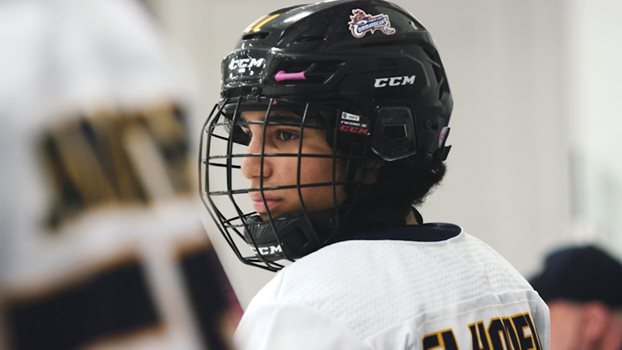
What the Assist Fund means to me: Saida Hammouch
The Hockey Canada Foundation Assist Fund helped Saida’s son Aymane embrace the game he loves and find his place in a new country
Three years ago, I moved my family from France to Quebec. My 15-year-old son Aymane was so happy to move to Canada and be able to live in a country that is passionate about the sport he loves so much – hockey.
Aymane picked up hockey at the young age of four when we lived in Paris, but there aren’t a lot of hockey clubs there like in Canada. He always wanted more from the sport and tried his hardest to learn and grow while in France.
When I changed jobs and got an opportunity to move my three kids to Quebec, Aymane was so excited to play hockey where so many other young kids play every day. All my kids play hockey, but Aymane lives and breathes the game. It is so hard to get him off the ice after practice or a game.
Coming to a new country is a challenge, and it is expensive. Without the Hockey Canada Foundation Assist Fund, I wouldn’t have been able to keep Aymane in the game.
I heard about the Assist Fund through our registrar when I went to register Aymane for the season. I didn’t have a steady salary at the time, and they explained what the Assist Fund could do for my family. I applied online and we are so grateful to have been accepted.
The Assist Fund was so important to us because I couldn’t have made the hockey season work without it for Aymane. He completely understood what was happening and I couldn’t imagine not being able to keep him playing. Aymane was so grateful to get the assist, which kept him playing this season.
Hockey is a family activity for us – all my kids play the sport, and we are at the arena every day. It provides a great way to dispel all their energy, learn discipline and make friends. It is also like a second family for us – there is so much solidarity with the players and teammates.
Aymane was passionate about hockey the first time he stepped on the ice. He would like to continue to play hockey throughout his life – he wants to stay in the game for as long as possible. He would love to be a trainer for a team when he is older.
Like many other Canadian parents, I want to do what is best for my kids and give them everything they want. For families that don’t have much extra money available or have financial difficulties, this is an incredible opportunity. We want our kids to dream, and having the Assist Fund allows many families to make that happen across Canada.
We were so happy to have access to the Assist Fund and a chance to keep Aymane playing the game he loves so much. The possibilities are endless when kids stay in sports, and I hope many other kids across Canada have the same opportunity Aymane had through the Assist Fund.

What the Assist Fund means to me: Anouchka Hawkes-O'Hara
The Hockey Canada Foundation Assist Fund helped Anouchka’s son Leon build connections in his community and gain a sense of belonging
Growing up in Ireland, I would watch hockey in the middle of the night because I loved it. I was a big Mario Lemieux fan. When I moved to Canada almost 20 years ago, I knew I wanted to immerse myself in the sport.
When I had my children, I always wanted them to play hockey and I’m a big believer in sports and the positive power it has on kids.
My son Leon is 10 years old, and he is an old soul. He is a firm believer in fair play and is concerned with how other people are doing. While he likes the competition, he likes to be the best he can be.
When Leon was younger, he watched his older brother Floyd play hockey and when asked who his favourite player was, he would say Floyd. He wanted to be just like him and wanted to play hockey, too.
The hockey rink is an integral part of our community – it is the heartbeat of Stanley, New Brunswick. Really, the rink is our community. Everyone has made us feel so welcome and made me feel that I wasn’t an outsider because I came from Ireland.
My boys have grown up at the rink and have made so many new friends through hockey. Leon has such good influences in his life through his coaches, who are teaching him and his teammates life lessons, along with building those hockey skills.
Through hockey, Leon gets that sense of belonging. There is such a camaraderie through sport that Leon is developing with his teammates.
With four children, including three boys in hockey, we have felt the same financial constraints that many Canadian families have faced recently.
This past season when I went to register them, a volunteer told me about the Hockey Canada Foundation Assist Fund, and I applied that night. The process was easy, and I got the registration fees covered for all three boys.
If it wasn’t for the Assist Fund, especially this year, I wouldn’t have been able to put the kids in hockey. Things have been lean, and I didn’t want to disappoint them by not playing the sport they love.
Some people are embarrassed to apply, but I am not. Any trepidation I had about applying and asking for an assist is eclipsed by the look of joy on my kids’ faces.
Even at 10 years old, Leon understood what it meant to get this assist and he was so excited. He is a very kind kid and notices everything. He is aware how much things cost, and he was so happy to know that Hockey Canada helped him and his brothers this season.
Hockey is such an integral part of Leon’s life. Although he knows he will never be a National Hockey League player, he loves the game so much that he even has a beer league name picked out. He wants to play hockey throughout high school and hopefully on a university scholarship.
When I see other parents in the same spot as I am, I know they are appreciative. We might not love the 5 a.m. wakeup calls for games, but the look on their faces when they hit the ice is the best thing.
Our community is so great, and we are all Bulldogs. We spend all winter at the rink, and we wouldn’t change it for anything.
Hockey is so much more than wins, losses or even Gordie Howe hat tricks – it is a lifelong love affair and the joy they experience when playing a game. I am so happy to give my kids the opportunity because we got an assist from Hockey Canada.
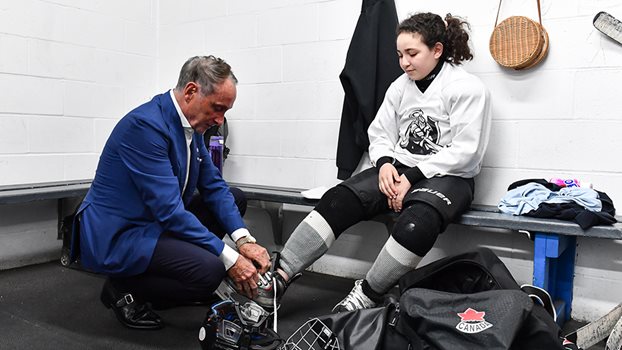
The power of an assist: BFL Canada
A hockey dad himself, Barry Lorenzetti knows what the game means to Canadian families. That's why BFL CANADA is proud to support the Hockey Canada Foundation Assist Fund
Being a hockey dad, Barry Lorenzetti knows the impact the game can have on Canadian families.
Lorenzetti has also seen the importance of creating equal opportunities at the grassroots level and giving back to those who face barriers.
“Hockey, of course, for me, represents a tremendous opportunity to unite the country,” says Lorenzetti, founder, president and CEO of BFL Canada.
Hockey has been a lifelong passion for the Montreal native – he has sat on the Hockey Canada Foundation Board of Directors for many years, including a stint as chair, and believes in the vision of promoting the game to young athletes.
“To be part of the Hockey Canada Foundation is in line with my values,” he says. “I am proud to be around business personnel who share in our vision, especially this endeavor from BFL’s perspective to be involved in the Assist Fund for Hockey Canada.”
BFL Canada is an insurance brokerage risk services company with over 1,100 employees across Canada.
It is a long-time partner of Hockey Canada and proud donor to the Hockey Canada Foundation Assist Fund, which was created in response to many families experiencing financial challenges as a result of the COVID-19 pandemic. The goal is to make the game more accessible to children and families who can’t afford the costs of hockey.
“We’ve seen the appreciation that the young folks have with the Assist Fund. Giving back like that is even more rewarding from my perspective,” Lorenzetti states. “To give underprivileged kids and their families the opportunity to register and get back into hockey. I think that has been such a tremendous success.”
Throughout his professional career, Lorenzetti has supported various charitable organizations, with a passion for women's entrepreneurship, mental health and elevating girls and women in hockey.
In particular, seeing the effects the pandemic had on the mental health of young Canadians was a driving factor in BFL Canada in collaborating and supporting the Assist Fund.
“We think having the kids out and having their families out on the ice through this function … it’s a small part that we have been able to do at BFL Canada perspective,” he says. “We are just honoured to be part of this group.”
BFL Canada is also a major sponsor of women’s hockey through Hockey Canada and Lorenzetti understands that starts at the grassroots level and helping get more girls into the sport.
“For me, just to see the faces, see the appreciation and to have fun with these kids and to see how they are appreciative to be on the ice,” he says. “This is a joint venture – where we give [to Hockey Canada], the more we get out of it. We are getting a lot out of it from my perspective.”
For more information or to donate to the Hockey Canada Foundation Assist Fund, visit HockeyCanada.ca/AssistFund.
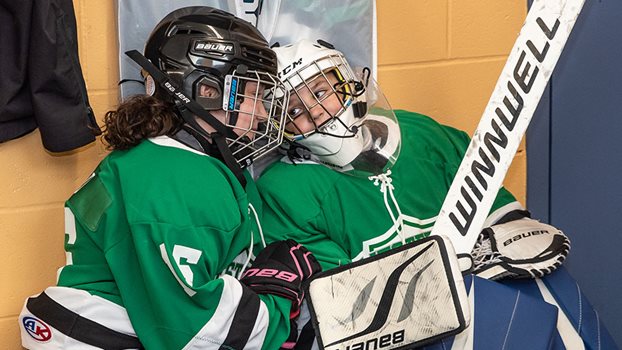
What the Assist Fund means to me: Chaley Thibeau
The Hockey Canada Foundation Assist Fund helped Chaley’s daughter Dakota work through her emotions and keep a connection to her happy place – on the ice
Growing up, I played hockey, and it is special to see my 11-year-old daughter pick up the game and enjoy it.
Dakota is happiest when she is in the crease for her team. She showed interest in hockey from an early age and tried being a regular skater, but really found her groove when she put on the goaltending equipment for the first time.
A few years ago, my partner and I separated, and I made the transition to being a single mom of three. The separation was difficult on Dakota. She is a kid that has big feelings, and seeing us go through that as a family was hard on her.
We tried our best to keep her happy, healthy and engaged in activities. Hockey is a great outlet for her to work through those strong emotions and having time on the ice gives her time to be around her friends and be happy.
But being a goaltender has its costs. I didn’t want her to not have the opportunity to play the game, but didn’t know how I was going to make it happen this year. Hockey means everything to her, and I wanted to do everything I could to help her stay involved and play with the travelling team.
I heard about the Hockey Canada Foundation Assist Fund from Dakota’s coach, and we easily applied. It was a quick process, and when we got approved it was such a relief to be able to tell her that she could keep playing with her friends.
As her mom, I get to see her be herself and be happy on the ice. When she started playing hockey, she enjoyed herself, but when she went in net, that’s when she really started to shine. She wants to play well all the time and it humbles her when she doesn’t always make the save, but it fuels her competitive drive. Her teammates always come over and cheer her on.
Playing hockey continues to build her confidence and compassion for her teammates, and that has continued to happen because of the help we received from the Assist Fund.
Dakota would love to play as far as she can go. Her dad played competitively throughout his youth, and we have talked to her about options, including scholarships being available at higher levels. She has big dreams, and we want to help her achieve those. Not being able to afford it shouldn’t be a barrier.
Having the Assist Fund cover the cost of Dakota’s registration gave me the extra money to get her equipment she needed for the season. I feel so fortunate to get this funding and I am just super grateful that Dakota can keep playing and growing in the game. It made a huge difference for us.
The best part as her mom is to watch her be happy, grow and build those lifelong friendships. That’s fulfilling for me and I’m really proud of her for what she has achieved. This year, we are grateful to have access to something awesome like the Assist Fund as she continues to reach for her dreams.

What the Assist Fund means to me: Heather Tully
The Hockey Canada Foundation Assist Fund helped Heather’s twins Karstyn and Calleigh remain part of the hockey community – their extended family – and keep a connection to the game
Hockey is a healthy outlet for my 12-year-old twins, Karstyn and Calleigh. After losing my job during the COVID-19 pandemic, I wasn’t sure I could afford to keep them in the sport they love so much.
Growing up in Winnipeg, my twins showed an interest in hockey after we drove past the Canlan Sports complex and Karstyn saw pictures of hockey players on the building. He said he wanted to try hockey, despite never having been on skates.
They were six years old when I put them in a learn-to-skate program and since then, they have both flourished in the game and the love has only grown as they have gotten older.
The connection we have built with the hockey community in our area has created an extended family. The friendships we have created are lifelong.
Karstyn has a fierce competitive streak, which creates some challenges for him, but hockey allows him to work through those, with help from his coaches.
Calleigh is such a free-spirited girl and her personality shines when she is in the dressing room and on the ice with her teammates.
And for me, I still have connections with other hockey parents from previous years. Hockey is important to my kids, so it was important to me to continue to keep them playing the game.
I heard about the Hockey Canada Foundation Assist Fund through our league convenor. When the company I worked for went bankrupt during the pandemic, I struggled as a single mom to find my footing again and continue to give my kids what they needed and wanted.
They understood the situation as best they could, but I also tried to exhaust all options before I broke their hearts if I couldn’t keep them in hockey.
When I looked further into the Assist Fund, I applied. When that letter came that said I received the funding, I cried. It was such a smooth and easy process and when I told Karstyn and Calleigh about the Assist Fund, they were excited.
Playing hockey at a high level is a dream for Karstyn – he wants to make it to the National Hockey League, like every other Canadian boy. He has that competitive fire and is so focused on getting better. He wants to achieve that dream, but is also thinking about becoming a child sport psychologist to help others with the issues he struggles with.
As for Calleigh, she would love to play for Canada’s National Women’s Team. She isn’t as competitive as Karstyn is – she wants to have fun, first and foremost. She is still figuring out who she is as a person, but whatever she ends up doing, I know she will dream big.
To have a group of people that care about each other’s families is so much more important than winning games. Hockey has shown us that it isn’t just about the game.
We are so grateful that the Assist Fund exists for families like ours and helps keep kids like Karstyn and Calleigh stay involved in the game. They would have been devastated to not be playing hockey and without the Assist Fund, it wouldn’t have been possible. Getting the funding was a bright spot for me as their mom and I can’t wait to see them and their teammates continue to grow in the game and build stronger friendships off the ice.

Leading the growth of para hockey
As a veteran Canadian para hockey player, Dr. Peggy Assinck’s goal is to grow the sport internationally and ensure women have a chance to play the game she loves
Growing up, Dr. Peggy Assinck was very athletic. She was not yet identified as being born with spina bifida—a congenital defect of the spine—so she was entirely able-bodied and played a variety of sports.
That’s why when she experienced complications from her condition and became paralyzed from the waist down at age 11, she felt like she lost a bit of her identity.
“It was really difficult to be honest with you, because I think I really self-identified as an athlete,” Assinck, 38, says. “My parents really wanted to find a way to have me be involved in sport, despite the fact that I was dealing with ongoing medical and paralysis-below-my-waist issues.”
A recreational therapist recommended she try one of the only adaptive sports near Peterborough, Ont., at that time: para hockey. Assinck and her family travelled 90 minutes away from home to try the sport for the first time. Although it wasn’t necessarily love at first skate, she was thrilled to meet other kids just like her.
“Because I grew up in such a remote community, I'd never met anyone else in a wheelchair or anyone else using adaptive equipment,” she says. “That was pretty cool just to meet other disabled kids.”
With time, her passion for para hockey grew and flourished. Now one of the veterans with Canada’s national women’s para hockey team, Assinck’s goal is to ensure other women and girls around the world have an opportunity to try the sport she has dedicated her life to.
Ensuring positive experiences for women
One thing Assinck emphasizes is ensuring positive experiences for women when they try para hockey for the first time. As the women’s team holds its selection camp in Yellowknife, N.W.T., from April 25-30, a grant from the Hockey Canada Foundation will assist with providing try-it opportunities and grassroots sessions in the community.
“I want to make sure that more kids and more people who sustained new injuries are getting a good first-contact experience,” Assinck says. “I think the Hockey Canada Foundation grant really helps for the women’s para hockey team to do that in remote communities [and] to help support female-specific programming.”
We believe as a Foundation that girls grow when they play hockey and hockey grows when girls play,” says Alexandra Wise of the Hockey Canada Foundation.
“Working with an organization like Women’s Para Hockey of Canada is something that allows us to align our missions and keep developing the game from a grassroots level, but then also at a higher level," Wise adds.
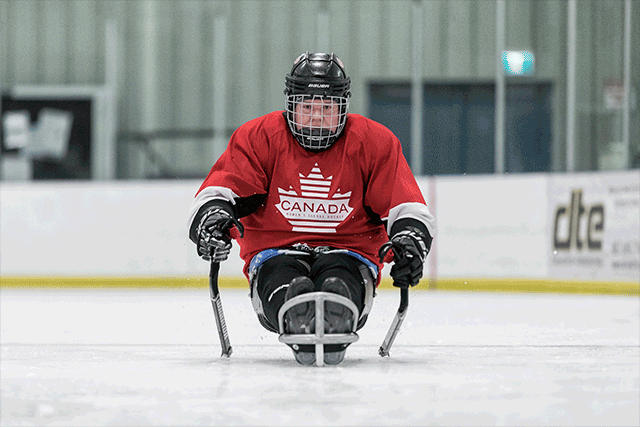 It’s no coincidence that wherever Assinck has gone in her life, women’s
para hockey has grown with her guidance and support. Inspired by wanting to
learn more about spina bifida, she attended Brock University to pursue a
neuroscience degree. As she completed her undergraduate degree, she played
with the Niagara Thunderbirds and volunteered with the Brock Niagara
Penguins, a sporting program for youth and young adults with a physical
disability.
It’s no coincidence that wherever Assinck has gone in her life, women’s
para hockey has grown with her guidance and support. Inspired by wanting to
learn more about spina bifida, she attended Brock University to pursue a
neuroscience degree. As she completed her undergraduate degree, she played
with the Niagara Thunderbirds and volunteered with the Brock Niagara
Penguins, a sporting program for youth and young adults with a physical
disability.
Upon her graduation in 2008, Assinck began her master’s degree and completed her PhD in neuroscience at the University of British Columbia. Looking to continue training as an elite para hockey athlete, she searched for a club team to join in her new home province.
“After growing up in southern Ontario, where para ice hockey was everywhere, I was quite surprised at how little para ice hockey was in British Columbia as a whole,” she says.
Once she joined a team based out of Surrey run by SportAbility, Assinck helped to create new para hockey programs in Vancouver and Victoria, and aided in making opportunities across the province to try the sport. From there, she helped to organize a provincial team with support from BC Hockey.
Traveling across the pond
A postdoctoral fellowship took Assinck overseas in 2017 to the University of Edinburgh and the University of Cambridge. There were a handful of club programs in Great Britain when she moved, and the Canadian quickly joined the closest team to her—the Manchester Mayhem—to continue training.
“I’ve been participating as an athlete on that club team for a while, but I think it became pretty clear that I had a lot of expertise in para hockey, and I got asked about a year into playing here to join as the assistant coach on [Great Britain’s] men’s para ice hockey team,” she says.
Assinck traveled with Team Great Britain to the IPC World Para Hockey Championship, B Pool, in 2019 in Germany.
“I think I was probably the only athlete who was also a coach, I was probably the only female who was also a coach,” she says. “It was a really amazing opportunity to just be on the bench and to help to support the men’s program in what they were doing and in their goals.”
With the addition of coaching on her résumé, a new opportunity presented itself in 2021: the International Paralympic Committee approached the coaches of Great Britain’s men’s para hockey team to ask if they would create a women’s team.
I suddenly found myself with the opportunity to create a team in another country… and it just seemed like the right space for me,” Assinck says.
Assinck quickly got to work. She put out a call for athletes with lower-body disabilities living in Great Britain, interviewed potential players and selected 27 athletes —most of whom had never played para hockey before—for the new program.
Although Assinck was leading the charge overseas, she continued to receive support from Team Canada staff back home. One of the difficulties she encountered was a lack of ice time, meaning she was often teaching a group of athletes how to play hockey without being on the ice.
“She’s spending time in classrooms teaching them the basics of hockey,” says Tara Chisholm, head coach of Canada’s national women’s para hockey team. “She’s renting out gymnasiums so they can do floor hockey and learn about systems that way. She’s literally pulling everything she can together to teach these athletes how to be hockey players in a space that really is not intended to flourish for hockey players.”
Despite the limited resources and the challenges of creating a new team during the COVID-19 pandemic, the newly formed Great Britain national women’s team is prepped to compete at its first international event, the IPC Women’s World Challenge, this fall.
“I honestly do not know how she does everything that she does,” Chisholm says. “I’m very grateful for all the work that she has done that goes unnoticed and that has essentially helped to develop women’s para hockey to where it is right now.”
Growing the game in Canada and beyond
As she created the team, Assinck put together a document of how she kickstarted the program with the goal to share it with other countries so they can replicate the processes.
“That is the big goal right now, to not only grow the game within our borders of Canada, but then to make sure that other girls and women with disabilities across the world have the opportunity to play the sport of hockey,” Chisholm says.
“In order to be in the Paralympics, we need more countries to create teams,” Assinck adds. “We just want to make sure that they have a great first experience and that we’re creating a sustainable program that can continue for many, many years.”
I’m a true believer that if I hadn’t been involved in [para hockey] when I was young, when I was going through the struggles that I had, I wouldn’t be the person I am today,” Assinck says.
Although it’s a bit of an odd position to play against the team you created in competition, Assinck had the full support of her British colleagues to return to Canada and prepare for the Women’s World Challenge. Despite everything she has done to grow the sport, she still prioritizes being the best athlete she can be and she trains hard to earn the privilege of wearing the Maple Leaf on her chest.
She hopes people see her as someone who has dedicated a lot of her life and finances to being an elite athlete, and someone who has gone over and above to support women and para hockey in Canada and around the world. It’s the least she could do for a sport that has changed her life.
“I’m a true believer that if I hadn’t been involved in [para hockey] when I was young, when I was going through the struggles that I had, I wouldn’t be the person I am today,” she says. “I wouldn’t have the confidence to be up speaking in front of thousands of people about neuroscience or even the confidence to be able to be jumping around from team to team in some of my coaching roles.
“I’m hoping that I can look back and feel like I did everything I possibly could to make sure that people with disabilities, particularly women with disabilities, are getting exposure to the sport that means so much to me and could mean so much to them.”
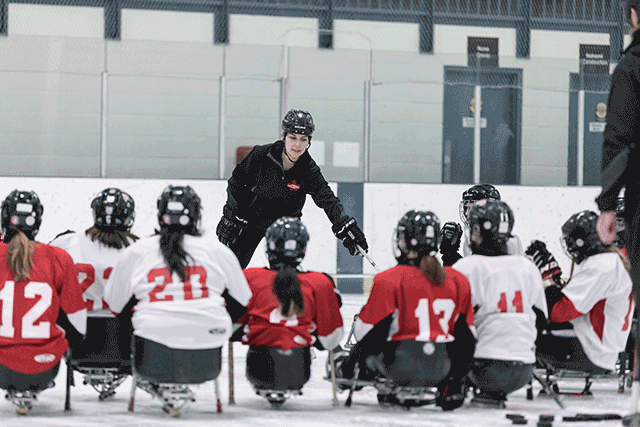
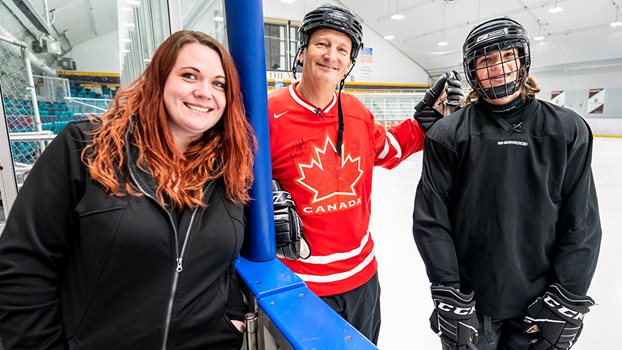
The power of an assist: BHE Canada
With a prairie-born hockey lifer leading the way, it’s no surprise Berkshire Hathaway Energy Canada was among the first to throw its support behind the Hockey Canada Foundation Assist Fund
Scott Thon says his staff are likely tired of him using hockey analogies in the boardrooms of Berkshire Hathaway Energy (BHE) Canada.
But when you grow up playing the game, have a father who coached and instilled the importance of teamwork and commitment, and also have a significant other with solid ties to the game, well, hockey’s values tend to stick with you.
“I grew up playing minor hockey, developed incredible relationships, learned a lot of values from a lot of different people who were my coaches along the way,” says Thon, who is president and CEO of BHE Canada. “I ended up playing Junior B hockey.
“Probably one of the biggest influences was my dad, who was a big coach in Saskatchewan, not just coaching me but he coached women’s hockey nationally. He coached a senior men’s team that won the Allan Cup. To not only have him as my coach but to be able to watch him move and coach in hockey, you could ask anyone at my business, they get 1,000 hockey analogies a day about how we need to run our business around the teamwork, how we need to think of it, whether it’s leadership or whatever it might be.”
Thon’s wife Deb played with Team Saskatchewan in the first-ever national women’s championship in 1982 in Brantford, Ont., where famous hockey mom Phyllis Gretzky dropped the first puck.
These days, Deb makes sure they tune into every Calgary Flames game. Hockey is still a major part of their lives.
Over the years, Thon and his companies have been major supporters of Hockey Canada and initiatives to get – and keep – kids on the ice. Most recently, BHE Canada has made significant financial contribution to the Hockey Canada Foundation Assist Fund.
The program was created in response to the fact many Canadian families experienced financial challenges due to COVID-19. The Assist Fund’s goal is to get these kids back on the ice and, during the 2021-22 season, more than $1 million was made available to provide registration fee subsidies to families.
“[BHE Canada has] always been big supporters of Hockey Canada. As COVID hit, the world changed for so many people and, for us, hockey is such an incredible sport. It’s Canada’s sport,” says Thon. “Like any team sport, it teaches a lot of values for kids. We just couldn’t fathom having kids that wanted to play but they couldn’t afford registration fees. That’s why we re-directed our funds into the [Assist Fund] to help those registration fees for kids who want to play hockey.”
Thon had a chance to witness first-hand the impact of his and his company’s support when he took to the ice in Calgary with 14-year-old Gage Varga, an Assist Fund recipient, and a few of his friends.
Gage and his sister, Mariah Beres, lost their mother six years ago. Mariah became Gage’s guardian, tasked with progressing from the role of sister to caretaker and leader.
Following the pandemic, though, Mariah found it financially challenging to keep Gage on the ice playing the sport he loves. Through Gage’s local hockey association, the McKnight Mustangs, she learned of the Assist Fund.
“It had a major impact. Without this program this year, Gage probably wouldn’t have been on the ice,” says Mariah. “I get to see my favourite all-star at every game, smiling away and I know that, without this program, that wouldn’t be possible.
“That look in his eyes, that passion. He’s always been closed off, he’s a very quiet boy. So when you see him out there just having a great time, it makes me so happy.”
Thon says this is what it’s all about – a kid who just wants to play and has been given that opportunity with the love and support of his family and an assist from Hockey Canada. He was enthralled to see Gage flying around the ice, the joy beaming from his giant smile.
“Today, if you live in an urban centre in Canada, ice time is really tough. What I loved about that hour or so, those kids just got to have the pure enjoyment of playing hockey,” says Thon. “They shot it off the cross bar a few times, they played some shinny, they did some play in the corner. This is all free form. No one is directing them at all. Then they did a shootout. They just literally played a sport that they loved with no structure. This was brilliant to watch kids just truly enjoy being on a sheet of ice.”
For more information or to donate to the Hockey Canada Foundation Assist Fund, visit HockeyCanada.ca/AssistFund.
For more information: |
- <
- >
















